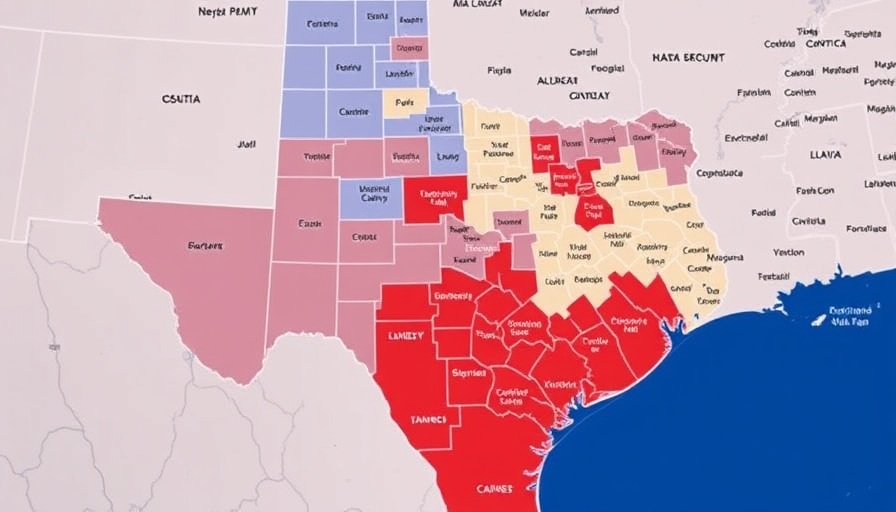
Texas Lawmakers Push for Binary Definitions: What’s at Stake?
As debates surrounding identity and recognition surge, Texas lawmakers are taking a controversial stance on how they define biological sex in legislation. Representative Andy Hopper notably claimed that only two sexes exist during discussions in early April, leading to tense exchanges with fellow lawmakers who pointed out that intersex individuals challenge this binary perspective. As Representative Lauren Ashley Simmons asked for clarity on how intersex people fit into the discussion, it became evident that much of the proposed legislation ignores the complexities of human biology.
Hopper was attempting to support House Bill 229, which on the surface aims to reinforce traditional definitions of "male" and "female" in state law. The bill was passed with an 87-56 vote, pushed forward by Republican state Representative Ellen Troxclair, who emphasized the necessity of defining individuals based on their reproductive systems. However, critics of the measure, including Representative Jessica González, argue that these efforts are fundamentally rooted in ignorance and marginalize transgender and non-binary individuals. This legislative trend raises alarming concerns about the future of rights for these groups in Texas and beyond.
Understanding the Implications of SB 406
Senate Bill 406, also on the legislative agenda, further illustrates the potential ramifications of these binary definitions. This bill would limit changes to sex markers on birth certificates, reflecting what its authors call "god-given sex." For many, birth certificates serve as crucial identification documents, and the inability to align official documents with personal identity can lead to significant consequences in everyday life—from employment to access to healthcare.
State Senator Mayes Middleton has been vocal about ensuring that birth certificates retain such "biological realities." This unilateral approach could provoke disciplinary legal challenges, especially for transgender and intersex individuals whose lived experiences do not align with strict definitions set by these laws.
Broader Social and Economic Implications
The push for such binary definitions extends beyond mere legislative debates and draws concerns about the social fabric and economic landscape in Texas. With the state becoming increasingly polarizing in terms of LGBTQ+ rights, businesses and business leaders in Texas must navigate the evolving legal terrain that could impact employee rights, workplace inclusivity, and corporate policies. Major corporations are often seen taking a stand on human rights issues, impacting their public image and employee morale.
Organizations that fail to create an inclusive environment risk losing talent and facing backlash from consumers who prioritize corporate ethics. Companies with robust diversity and inclusion policies may find themselves better positioned in the market, especially among younger generations who support equal rights and social justice.
The Future of Gender Identity Legislation in Texas
This increasingly contentious issue prompts essential questions about the future trajectory of gender identity legislation. Advocacy groups argue that understanding and acceptance of a spectrum of gender identities must evolve if we are to foster an inclusive society. The Texas Freedom Network's Erika Slaymaker emphasizes that if biological sex were as clear-cut as it is being legislated, there wouldn't be ongoing debates grappling with these complexities.
A growing body of research highlights that human identity cannot be easily categorized into strict binaries. For many, topics around gender and sex are personal and deeply rooted in lived experience. The progress these individuals strive for hinges on balanced discussions and the veracity of what science can inform us about human diversity. The present legislative actions may not just reshape legal definitions but also reverberate through communities by further entrenching biases that marginalize vulnerable groups.
Concluding Thoughts: The Business Perspective
For business owners and leaders watching these developments unfold, the message is clear: remaining informed about the political landscape and its implications for inclusivity is not just good ethics; it’s good business. As Texas navigates its place in this divisive conversation, the role of private sector advocates will likewise prove critical.
Call to Action: Engage in discussions around inclusivity within your organization. Evaluate your policies and consider what measures can be taken to foster a more equitable workplace, ensuring that everyone, regardless of their gender identity, feels respected and valued. This not only enhances your organizational culture but strengthens your reputation in today's socially conscious market.
 Add Row
Add Row  Add
Add 




Write A Comment